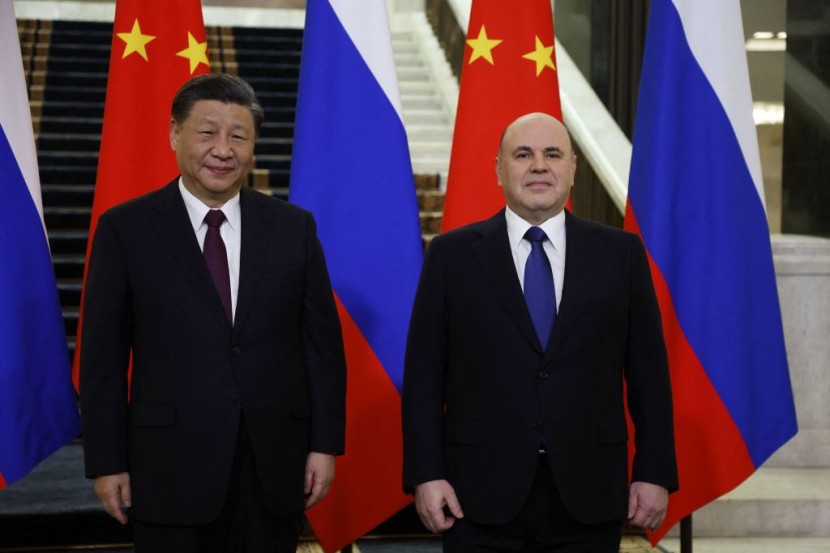
During a trip to Beijing on Wednesday, the Russian prime minister signed a number of agreements with China, characterizing bilateral relations as being at an all-time high despite Western disapproval as the conflict in Ukraine carried on.
Premier Mikhail Mishustin met with Chinese Premier Li Qiang and President Xi Jinping, the highest-ranking Russian official to visit Beijing since the deployment of thousands of troops to Ukraine in February 2022.
Russia, China Sign Slew of Economic Deals
The war in Ukraine is now in its second year, and Russia is experiencing more pressure from Western sanctions. As a consequence, Moscow relies on Beijing for support far more than China relies on Russia and satisfies Chinese oil and gas demand.
With the Group of Seven nations' weekend declarations singling out Russia and China on a variety of issues, including Ukraine, the pressure from the West shows no sign of abating.
The signed memoranda of understanding included an agreement to expand investment cooperation in trade services, an agreement on the export of agricultural products to China, and an agreement on sports cooperation, as per NBC News.
According to Interfax, Russia's energy exports to China are expected to increase by 40 percent this year, and the two nations are considering the supply of technological equipment to Russia.
Xi visited Russia in March and met with Vladimir Putin, his "close friend," after committing to a "no limits" partnership just prior to the 2022 Russian attack on Ukraine, which Moscow refers to as a "special military operation."
Beijing has rejected Western efforts to link its partnership with Moscow to Ukraine, maintaining that their relationship does not violate international norms, that China has the right to collaborate with whomever it chooses, and that their partnership is not aimed at third parties.
President Xi Jinping urged Russia to assist in strengthening bilateral ties as both countries seek to counteract a US-led global order in which they have become increasingly isolated, according to Yahoo.
According to the report, the Chinese leader identified the United Nations, the security-focused Shanghai Cooperation Organization, the emerging-markets bloc of Brazil, Russia, India, China, and South Africa, and the Group of 20 as venues in which Beijing and Moscow could collaborate more closely.
Emerging is a multipolar world comprised of rival factions primarily divided by their attitudes toward the Kremlin's war in Ukraine, Beijing's territorial claims over Taiwan, and questionable economic practices.
Russia and China Hit Back at West
Last weekend, at a Group of Seven summits, leaders criticized China and Russia in a joint statement, highlighting these divisions. Xi is attempting to reorient global affairs away from Western groupings so that China can expand its interests without fear of economic or military pressure from the United States.
At the beginning of this month, he hosted the first-ever in-person China-Central Asia Summit, bringing together the leaders of five former Soviet nations while the G7 was taking place in Japan.
Beijing has rejected Western efforts to link its partnership with Moscow to Ukraine, asserting that their relationship does not violate international norms, that China has the right to collaborate with whomever it chooses, and that their partnership is not aimed at third countries.
The secretary of Russia's Security Council, Nikolai Patrushev, conducted talks on Monday with Chen Wenqing, a member of the Chinese Communist Party's Politburo who supervises police, legal affairs, and intelligence. Chen Wenqing is responsible for police, legal affairs, and intelligence.
Per Reuters, Beijing has refrained from publicly condemning the invasion by Russia. Since February, Xi has advocated for a peace plan, which has been greeted with skepticism from the West and cautious support from Kyiv.
Li Hui, China's special representative for Eurasian affairs, visited Ukraine last week and met with President Volodymyr Zelenskiy as part of a tour of Europe that Beijing framed as an effort to advocate peace talks and a political resolution to the crisis.
Related Article : WHO Excludes Taiwan From Annual Assembly After China Opposition








